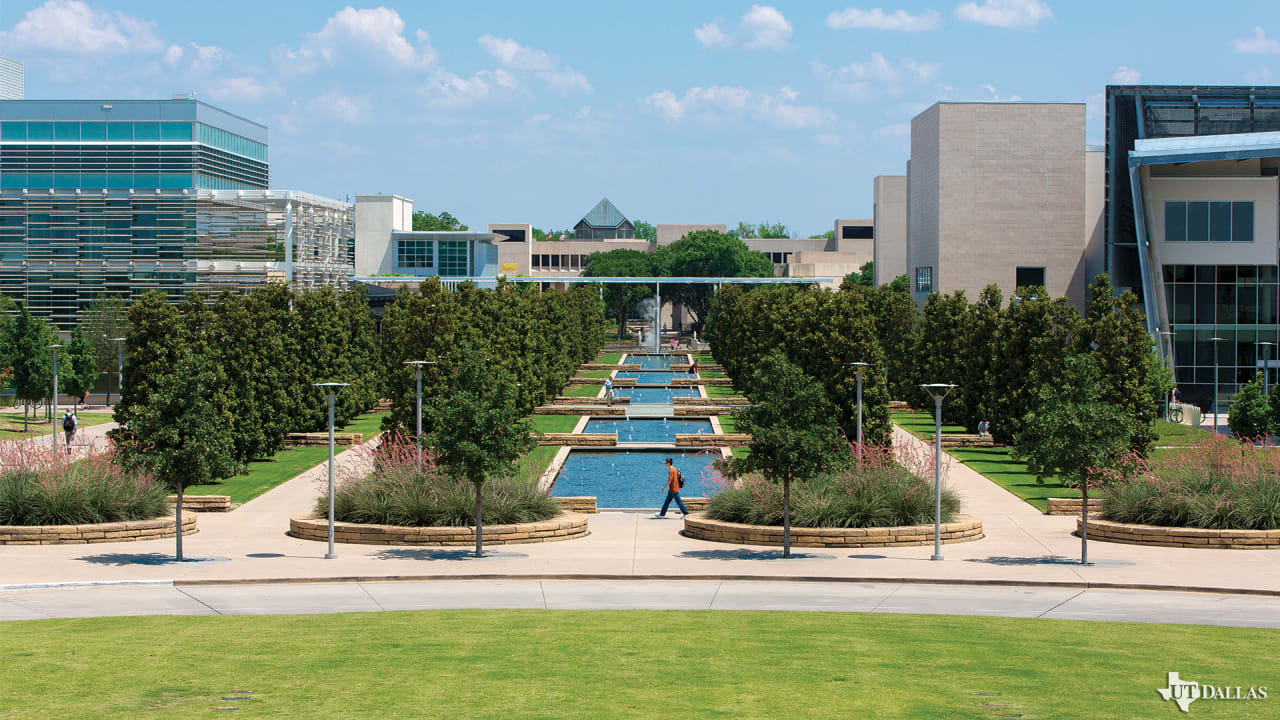
Doctor of Philosophy in Cognition and Neuroscience
The University of Texas at Dallas

Key Information
Campus location
Richardson, USA
Languages
English
Study format
On-Campus
Duration
4 years
Pace
Full time
Tuition fees
USD 18,276 / per semester
Application deadline
Request info
Earliest start date
Aug 2024
Introduction
The Ph.D. program in cognition and neuroscience offers advanced study and research training for students seeking to become leading scientists and scholars in the field. Research in cognition and neuroscience encompasses all aspects of cognition, including studies of perception, memory, reasoning, decision-making, neuroplasticity, and neuro-engineering.
The cognition and neuroscience Ph.D. program offers a distinctive blend of research initiatives and doctoral study in the neural processes underlying sensation, perception, memory, learning, language, and executive function throughout the lifespan. Students may focus on perception and memory for complex information patterns such as faces, speech, language, music, and text, or reasoning and decision-making processes in conditions such as brain damage and addiction. Another area of strength is cellular and molecular neuroplasticity — in typical learning and memory as well as in chronic pain and other atypical conditions. The program also has strengths in artificial neural networks and neuro-engineering.
The Ph.D. program in cognition and neuroscience offers exceptional research facilities, including state-of-the-art laboratories for investigating neuroanatomical, neurophysiological, neurochemical, and neuropsychological processes, as well as for conducting advanced mathematical analyses and modeling. In addition, the school’s centers, such as the Center for BrainHealth and the Center for Vital Longevity, house outstanding research facilities for the study of cognitive neuroscience, including cutting-edge brain imaging technologies for identifying the neural signatures of learning, aging, and disease. Collaborative arrangements with the UT Southwestern Medical Center expand student research opportunities through additional access to clinical populations and neuroimaging facilities.
Ph.D. students selected for the program are fully funded through either a teaching assistantship (TA) or a research assistantship (RA). The minimum funding amount is $2,000 per month, guaranteed for nine months. Additionally, all Ph.D. students receive a tuition waiver from the university.
Admissions
Curriculum
Degree Program
The PhD program in cognition and neuroscience is divided into two tracks: cognitive neuroscience and systems neuroscience. Coursework and some degree requirements differ between the two tracks, but all students are required to complete a minimum of 75 semester credit hours beyond the baccalaureate degree.
What’s the Difference Between Cognitive and Systems Neuroscience Tracks?
Cognitive neuroscience research in the School of Behavioral and Brain Sciences (BBS) includes research in human psychology, including memory, perception, music, and addiction. It is centred in our Department of Psychology and utilizes human neuroimaging tools such as MRI, EEG, and PET. New students are directly admitted to a single research laboratory.
Systems neuroscience research in BBS focuses on neurobiological approaches in neuroscience, including molecular, cellular, and systems approaches in animal models and humans. Research foci include learning and memory, stress, addiction, and pain. It is centred in our Department of Neuroscience. New students can rotate through multiple research laboratories or directly join a single laboratory.
Career Opportunities
Graduates of the program seek positions such as neuroscientist in academic, private practice, industry, or medical settings; researcher or professor.
Facilities
English Language Requirements
Certify your English proficiency with the Duolingo English Test! The DET is a convenient, fast, and affordable online English test accepted by over 4,000 universities (like this one) around the world.